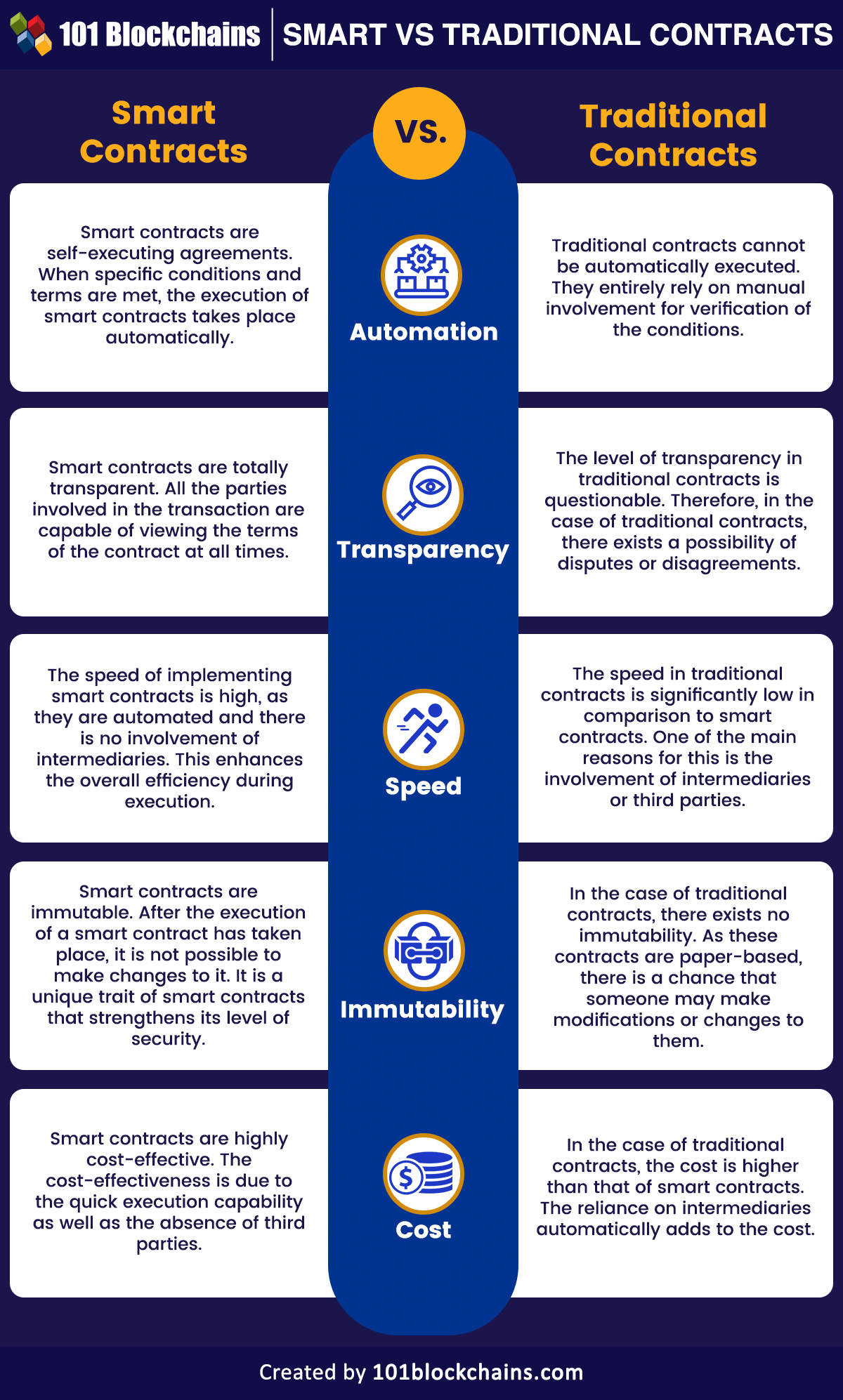Brett Rickaby's Insightful Corner
Exploring the world through news, tips, and intriguing stories.
Bargain with Code: How Smart Contract Fairness Levels the Playing Field
Unlock fair deals with smart contracts! Discover how technology is leveling the playing field in Bargain with Code. Click to learn more!
Demystifying Smart Contracts: How Fairness Creates Opportunities for All
Smart contracts have revolutionized the way we perceive agreements and transactions in the digital age. These self-executing contracts, powered by blockchain technology, eliminate the need for intermediaries, thereby reducing costs and enhancing efficiency. By automating the execution of predefined terms, smart contracts not only ensure compliance but also foster transparency, which plays a crucial role in establishing a fair environment for all parties involved. As businesses and individuals continuously seek ways to enhance trust, the capability of smart contracts to automate and standardize processes paves the way for more equitable economic participation.
Moreover, the inherent fairness embedded in smart contracts creates a plethora of opportunities for diverse stakeholders. By enabling decentralized governance models, these contracts allow for inclusivity in decision-making processes, empowering users from various backgrounds to contribute and benefit from collaborative ventures. Whether it's facilitating fair payment systems for freelancers or ensuring equitable access to resources in decentralized finance (DeFi), smart contracts serve as powerful tools that democratize access and foster innovation across industries. As we explore the potential of blockchain technology, understanding the principles of fairness in smart contracts will be essential in shaping a future that is beneficial for everyone.

Counter-Strike is a popular tactical first-person shooter franchise that pits teams of terrorists against counter-terrorists in various game modes. Players engage in objective-based gameplay, often revolving around bomb defusal or hostage rescue. For those interested in enhancing their gaming experience, using a bc.game promo code can provide valuable in-game rewards.
The Role of Smart Contracts in Ensuring Equity in Digital Transactions
Smart contracts are revolutionizing the landscape of digital transactions by ensuring transparency and fairness. Unlike traditional contracts that depend on third-party intermediaries, smart contracts operate on blockchain technology, executing agreements automatically when predefined conditions are met. This eliminates the potential for fraud and manipulation, as the code is tamper-proof and publicly accessible. By providing a decentralized framework, smart contracts empower individuals, allowing them to engage in transactions without the need for trust in a central authority.
Moreover, the implementation of smart contracts plays a crucial role in promoting equity in various sectors such as finance and supply chain management. For instance, in a peer-to-peer lending scenario, a smart contract can facilitate loans based on transparent criteria, ensuring that all participants are treated fairly and without bias. As a result, individuals from diverse backgrounds gain access to essential services that were previously limited by discriminatory practices. Overall, the capacity of smart contracts to foster inclusivity and mitigate risks is fundamentally changing the way we conduct business in the digital age.
Are Smart Contracts the Key to Fairer Bargaining?
As the digital landscape continues to evolve, the emergence of smart contracts has sparked significant debates around their potential to create fairer bargaining environments. These self-executing contracts encode the terms of an agreement directly into code, facilitating transactions without the need for intermediaries. This technology not only enhances trust among parties but also increases transparency, as the contractual terms are immutable and accessible on the blockchain. By removing traditional barriers and enhancing accessibility, smart contracts could democratize bargaining processes, making them more equitable and reliable.
Moreover, smart contracts can help mitigate common issues associated with traditional contracting, such as discrepancies in understanding, enforceability, and compliance. For instance, the automation of contract execution ensures that agreed-upon conditions are met before any transaction occurs, further safeguarding the interests of all parties involved. As businesses and individuals seek to enhance fairness in negotiations, leveraging smart contracts could play a critical role in redefining the future of agreements. The question remains: can smart contracts truly democratize interpersonal transactions and lead to a more just economy?